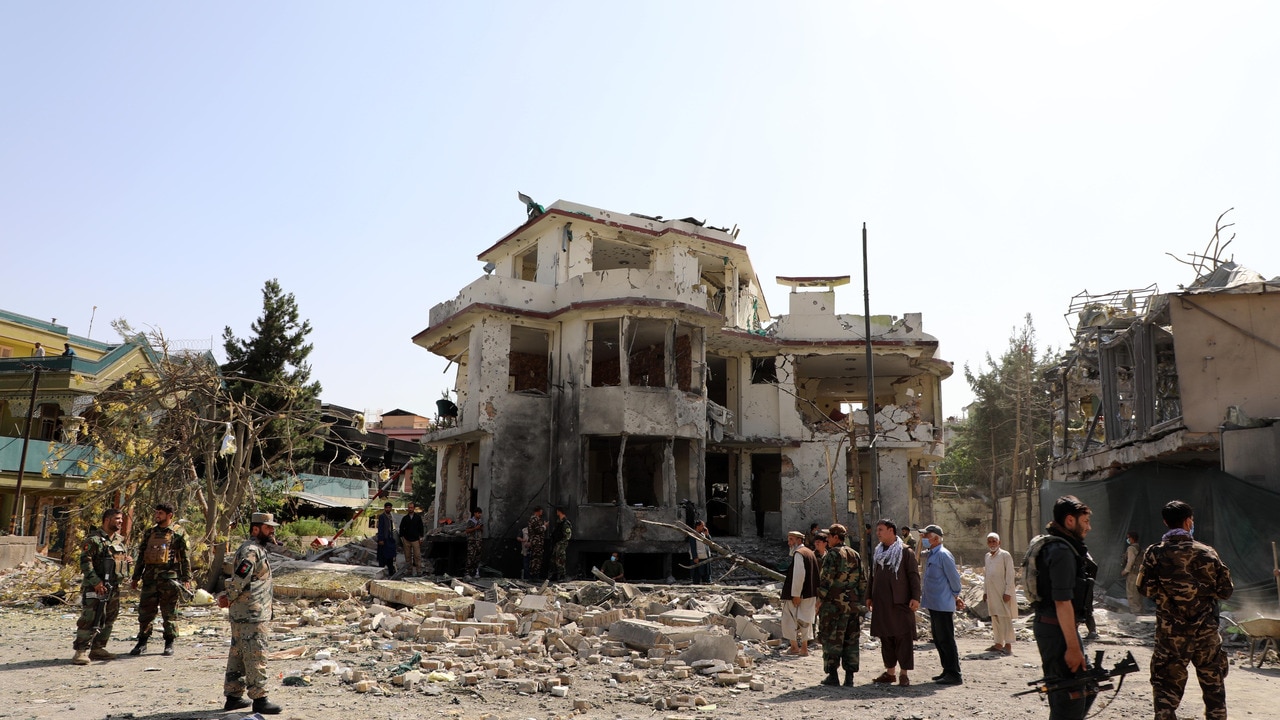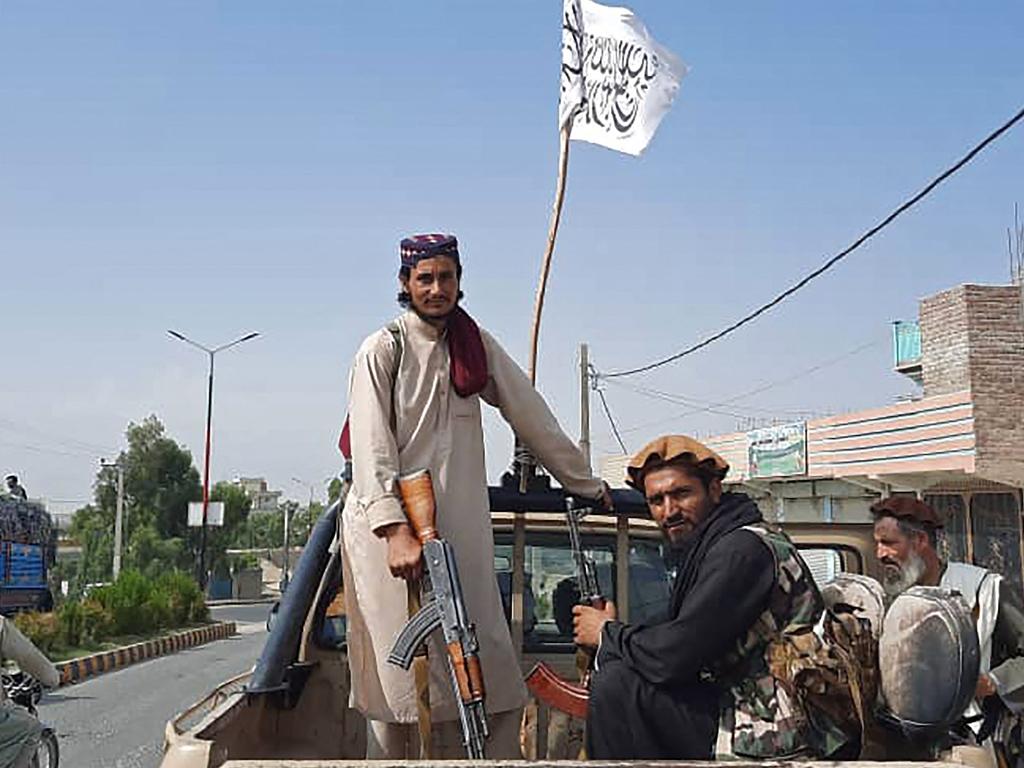Pakistan’s proxies have facilitated the Taliban’s resurgence in Afghanistan

The key question occupying many minds in Afghanistan and around the world is that after 20 years of unprecedented international military, diplomatic and development efforts, how and why has the country been brought to this point? The salient factors include: Pakistan’s ill-fated policy of using violent proxies in pursuit of strategic objectives, weaknesses of governance in Afghanistan and the US’s mistakes and miscalculations.
Pakistan’s three decades of nurturing the Taliban stands to be the key factor. Its rivalry with India, domestic tensions between the military establishment and civilian governments, its mistrust of neighbours and nostalgia to imitate the old British mastery constitute motivations behind Pakistan’s proxy war that have remained unaddressed. Former president Pervez Musharraf told The Guardian in 2015, “Pakistan’s Inter-services Intelligence had given birth to the Taliban to counter Indian action against Pakistan”.
In Afghanistan, the 2004 constitution gave too much power to the president, which was later abused by presidents Hamid Karzai and Ashraf Ghani in favour of prolonging their rule and weakening the rule of law and governance system. As a result, the country was driven toward personalisation, ethnicisation, polarisation, clientelism and private favouritism as opposed to building a functioning state with effective executive, legislative and judiciary powers. This brought unprecedented disunity, corruption, poor governance, poverty, and unemployment. On occasion, the Taliban’s violence was tolerated by the Presidential Palace due to ethnic favouritism, and those who opposed it were punished. Most treacheries involved in the recent fall of many districts and cities to the Taliban have the hallmarks of corruption and ethnic politics.
Internationally, perhaps the biggest mistakes of the past 20 years have been the US shift of focus from Afghanistan to Iraq in 2003, ignoring the duplicity of Pakistan in support of the Taliban and al-Qa’ida, and backing the wrong side in the domestic politics of Afghanistan, which has been riddled with electoral fraud, corruption and ethnic politics, and emboldening the Taliban through the signing of the Doha agreement. These issues caused the early gains not to be consolidated and paved the way for the gradual return of the Taliban to reconquer the country. President Biden’s latest decisions, especially his deployment of 5000 US troops to assist in the drawdown, clearly indicate that Washington now sees US interests at serious risk.
One of the biggest flaws of the peace process has been to treat the conflict as a mere internal matter of Afghanistan. Addressing Pakistan’s involvement has long been overdue. In 2017-18, it received some international attention. The UN Secretary-General and Security Council ambassadors, during visits to Kabul, were strongly urged by the Afghan side to act on Pakistan. In August 2017, the new US strategy for South Asia accused Pakistan of harbouring terrorists and providing them safe havens. This was followed by US suspension of military aid to Pakistan. In 2018, the Financial Action Task Force accused Pakistan of terror financing and placed it on its grey list. In 2019, Afghanistan lodged an unprecedented complaint to the UN Security Council against Pakistan’s numerous violations of Afghan territory. These moves were intended to pressure Islamabad to change its policy of violence and aggression. They required collective perseverance and continuity. But this did not happen, as the Pakistani government managed to soothe the situation by adopting a policy of rapprochement towards Kabul and using regional geopolitical fault lines against international pressures. Islamabad fully exploited Washington’s tensions with Tehran, Moscow and Beijing to favour its position in support of further political promotion of the Taliban.
Frustrated in the face of the Kabul government’s and international inaction to deal with the recent Taliban aggression, the Afghan people have launched their own public campaign of #SanctionPakistan, which has gone viral.
The Taliban invasion of Kabul and the return of its draconian regime appears to be inevitable but the Afghan resistance to its rule will continue. Tragically, this will turn the bulk of Afghan territory into a breeding ground for terror, providing oxygen to other violent extremist groups around the world.
While the humanitarian catastrophe and the need for an urgent political settlement demand immediate world attention, what is most required is also a condemnation of Pakistan’s creeping aggression and strong measures against it. Under Chapter VII of the UN Charter, the Security Council is obliged to treat the Taliban’s proxy takeover as an act of aggression and deal with it in accordance with Articles 41 and 42, in order to restore peace and security in Afghanistan. No doubt, Pakistan’s strategic ally, China, may be reluctant to co-operate with the Security Council, in which case a resolution could be presented to the General Assembly, similar to what happened in January 1980 against the Soviet occupation of Afghanistan.
Only a policy of pressure and condition-based rapprochement with Pakistan can bring real positive change in Afghanistan and maintain international peace and security.
Mahmoud Saikal is Adjunct Professor at the University of Canberra. He has served as Afghan deputy foreign minister and ambassador to the UN and Australia.
More Coverage







With tragic events rapidly unfolding in Afghanistan, the 20th anniversary of September 11 set as a deadline by President Joe Biden for US troop withdrawal may soon mark the triumph of terror and medieval obscurantism with catastrophic global consequences. The Taliban, emboldened by the February 2020 Doha deal with the US and the announcement of an unconditional withdrawal of all foreign forces, has been violently “conquering” most provincial capitals and districts, causing mayhem and destruction across the country. The noose is now tightening around the capital, Kabul. The UN Secretary-General warns “Afghanistan is spinning out of control”.